An educational institution is a public place in which it is simply necessary to adhere to special rules. The most difficult thing is for younger schoolchildren, who yesterday could do anything, and today they should sit exactly at the lessons. The rules of conduct at school are the knowledge that will help children find it easier to find a common language in the future. Parents can discuss the main points with the child before the school year begins.
Who should teach children the rules?
The rules help younger students to adapt more easily in the team, to find a common language with their peers. In addition, due to the observance of special rules, teachers can more easily manage the children. After all, simultaneously communicating with thirty young students is not so simple. Who should teach children the rules of behavior? First of all, the responsibility lies with the parents. Before a child enters first grade, he is interviewed by a psychologist and the administration of the educational institution. The basic requirement is knowledge of elementary rules of behavior.
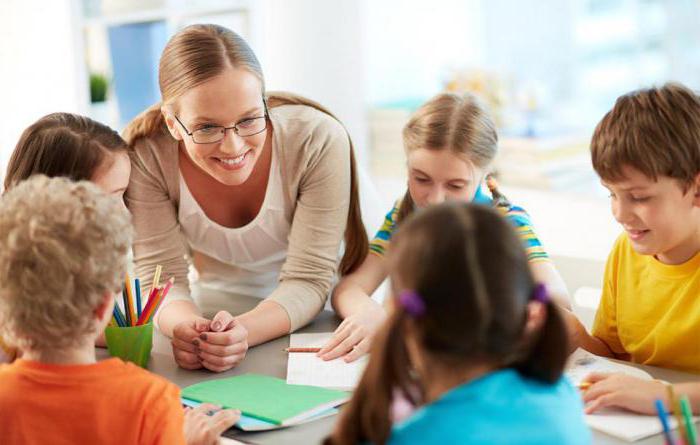
In the future, the teacher will tell the rules of behavior of students at school in the first lessons. It is advisable for children to provide information in a playful way. Everything must be done so that young students want to comply with the negotiated rules. You can connect a competitive moment: who will better fulfill all the requirements receives a promotion at the end of the quarter. And so that children better remember all the necessary requirements, the memo “Rules of conduct at school” should be placed in an accessible place.
Rules of conduct in the locker room
The locker room is a place where children meet with their classmates before the start of the school day, discuss important points. To avoid chaos, it is also important to follow the rules of conduct. At primary school, this can be difficult to do, but a habit is developed during the first quarter. The first important rule is to come to school at least 10 minutes before the first lesson. In winter, it is recommended to come even earlier in order to have time to change shoes, hang clothes, and lay out textbooks necessary for the first lesson.
The locker room is not a place for outdoor games. Here you should behave calmly, not scream. Do not leave expensive items such as a mobile phone or tablet in the locker room. The school’s administration usually warns that parents are responsible for the use of these gadgets by their children.
Each elementary school student’s locker room usually has its own locker. The child must ensure that his things are in the designated place for him. It is unacceptable to throw a jacket or hat on the floor, hang clothes in someone else's locker.
School Behavior
Children should understand that they are coming to a lesson in order to gain knowledge. Therefore, careful attention to the teacher, as well as the information that he provides is the main rule of the educational institution. You cannot be late for a lesson without good reason. All necessary subjects (textbooks, office, etc.) must be prepared in advance.
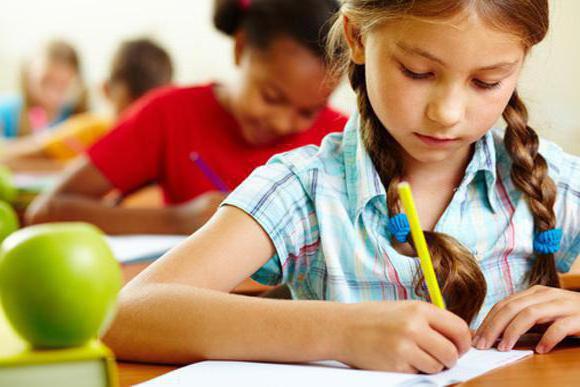
Another important rule in the lesson: everyone who wants to answer a question or express their opinion should raise their hand. In no case should you interrupt a comrade, much less a teacher.
In notebooks you need to write beautifully and legibly. This rule can be difficult for children who are just starting out in first grade. But just for them there is such a thing as a "letter."Thanks to the exact fulfillment of the teacher’s requirements, the child quickly learns to write calligraphically.
Rules of conduct during the break
The guys spend most of their time in the walls of the school. Many employees of the educational institution make a lot of efforts to ensure that students are warm, bright and comfortable. Younger students must respect other people's work from an early age. Therefore, the main rule during a break is the preservation of school property. Children can not get dirty curtains, smear desks, draw on the walls. Parents will be responsible for such actions.
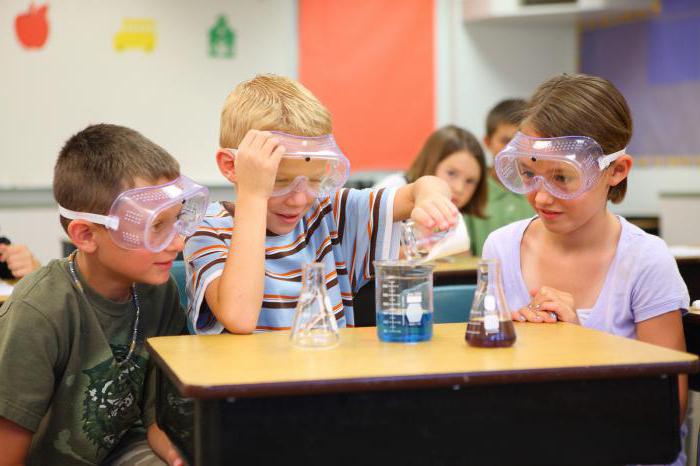
What other school rules are there? Grade 1 is the smallest guys in an educational institution. But as early as 6-7 years old, schoolchildren should know that you can’t run in the corridors, otherwise you can cripple your comrades or knock down a teacher. It is always worth remembering that there are other children and adults around. You should behave so as not to interfere with the rest. Categorically it is impossible to shout and use rude words.
How to behave in the dining room?
Nutrition for primary school students is compulsory. The guys have breakfast and lunch at the educational institution. Therefore, it is important to observe elementary rules of behavior in the school cafeteria. Pupils in first grades usually go for lunch in formation. In this case, it is important not to lag behind, adhere to the requirements of the teacher. Older children can attend the buffet on their own during breaks. In this case, the rules of conduct for students at school should also be followed. It’s important not to jostle in the queue, not to forget the polite words “thank you,” “please,” “kindly,” etc.
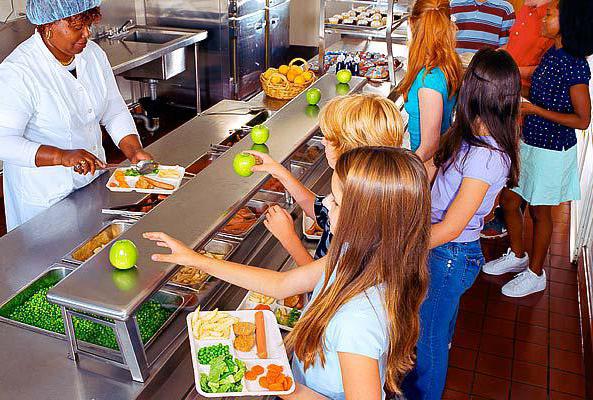
We must not forget about the rules of behavior at the table. It is worth remembering that other guys are in the dining room. You can’t push around, eat loudly, show discontent about a particular dish. After lunch, be sure to clean up after yourself.
It is strictly forbidden to run in the dining room. It must be remembered that many carry dishes here on special trays. Inattentive movement can lead to the fact that all the food will be on the floor, and the dishes will be broken.
Library Behavior Features
The rules of conduct in school for elementary grades are an important component of the correct educational process. The teacher tells how to behave not only in the lesson or break, but also in the library. The reading room is associated primarily with silence. Therefore, students should be aware that there is no noise in the library.
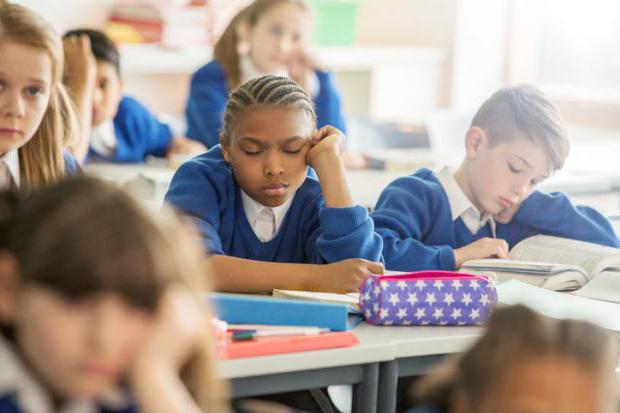
Books are always kept in the reading room. Copies taken home should be returned shortly. More than a month to keep magazines or other literature is not acceptable. The exception is the textbooks that students need in the program.
The rules of conduct in school for elementary grades can be found thanks to the subject “The World around”. The lesson is conducted according to the state program by all first graders. Questions are also raised regarding behavior in reading rooms and libraries.
Etiquette
The rules of conduct in the lesson at school are not limited to compliance with the norms of the educational institution. There are also rules that are generally accepted by all - adults and children. It's about etiquette. If a child manages to learn the main points, he will be able to behave with dignity at a party, in any institution, in a theater, at a concert, etc.
What rules of conduct in school also apply to etiquette? First of all, it is the need for boys to give way to girls, and for younger ones to give way to elders. If a child follows such simple rules, parents and teachers are proud of him. The child must also remember that you must not be familiar. Teachers at school should be contacted only by “you” and only by their middle name. Not an exception is also the case when one of the parents or another relative acts as a teacher.
Out of class
School life is not limited to lessons within the walls of an educational institution.The children, together with the teacher, attend various events, go to museums. Those who know all the rules of conduct at school will always be able to stay safe. “The world around us” is a subject that describes how to behave also outside the educational institution. It is, first of all, about the rules of the road. In most cases, a group of students who go to an event as part of the curriculum is accompanied by two teachers. However, children should know that you should only cross the road to the green light, and you need to be especially careful on the zebra.

The “Rules of Conduct at School” leaflet often contains information regarding students staying on the road. Parents need to be sure that their children know the main points, understand how and where to cross the road, how to avoid a traffic accident.
Rules of conduct in transport
If the student needs to get to the educational institution by public transport, then the rules of behavior at school are not enough. After all, if an unpleasant incident happens in a taxi or bus with a child, both parents and the school management will know about it. All passengers in transport are on an equal footing. The student must not forget to pay a fare or present a student ticket. If the bus is full, you should remove the backpack so as not to push neighboring passengers.
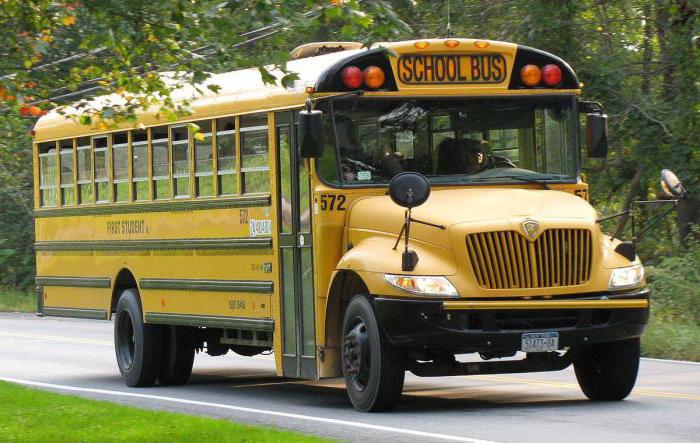
We must not forget about the rules of etiquette - it is worth giving seats to passengers with children, pregnant women and the elderly. Loud conversations are unacceptable in public transport. The guys who laugh a lot are also attracting attention, using foul language. For such students, adults usually make comments. If the student does not respond to them, he will be asked to leave the vehicle. There is a risk of being late for the lesson. School rules will be violated.
What can not be brought to school?
Elementary rules of conduct at school help to remain safe. The world around is full of things that carry a potential risk to life. Therefore, students should clearly know what is forbidden to bring into the walls of an educational institution. First of all, this applies to objects that can provoke a fire. This should include flammable liquids, lighters, matches. Responsibility lies with the parents. Moms and dads should know what is in the backpack of a primary school student.
Games that can distract from the learning process cannot be brought to school. This is more true for tablets and minicomputers. It is strictly forbidden to bring pets to school.
Summarize
It is much easier to get knowledge and find a common language with teachers and peers for those guys who managed to learn the rules of behavior in school. The class, the world around us, transport, the street - all this will be more interesting and safe if absolutely everyone - both adults and primary school children - adhere to elementary norms.